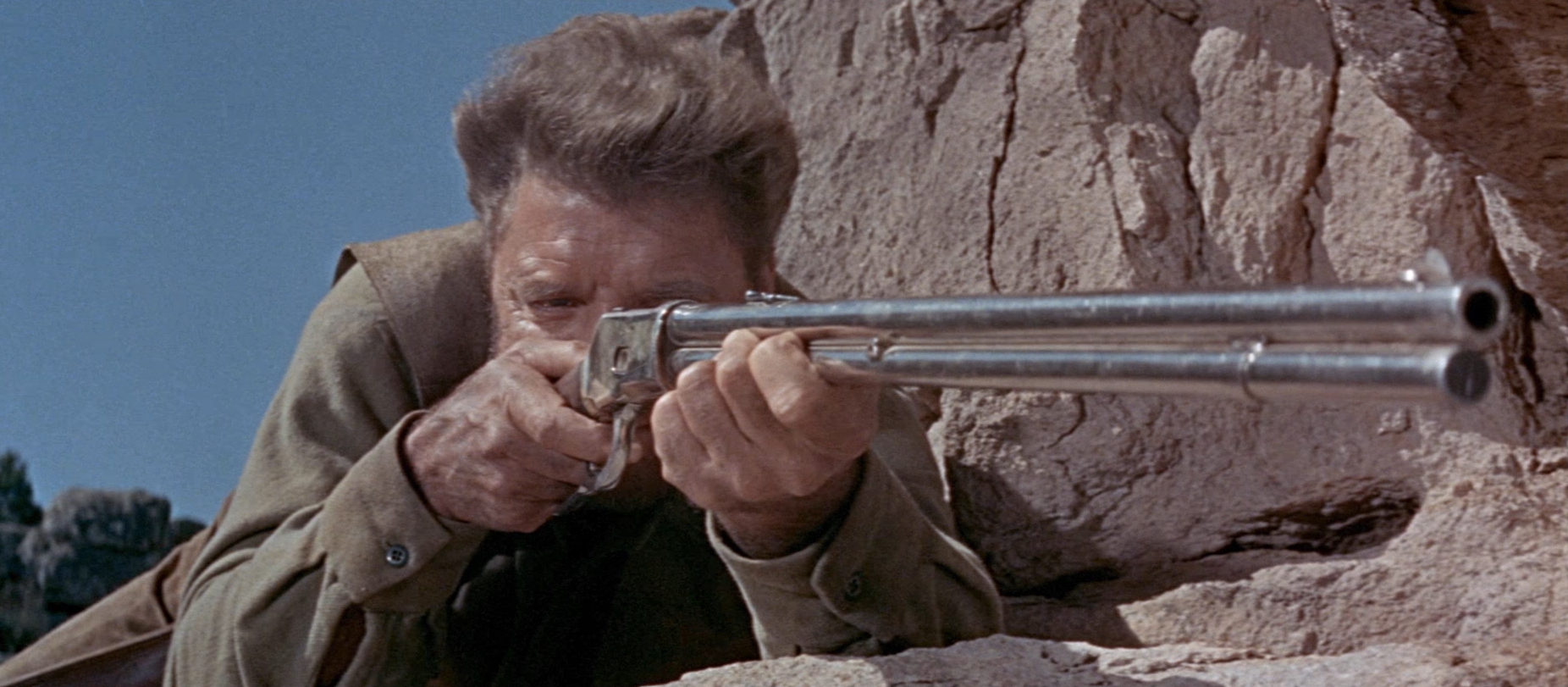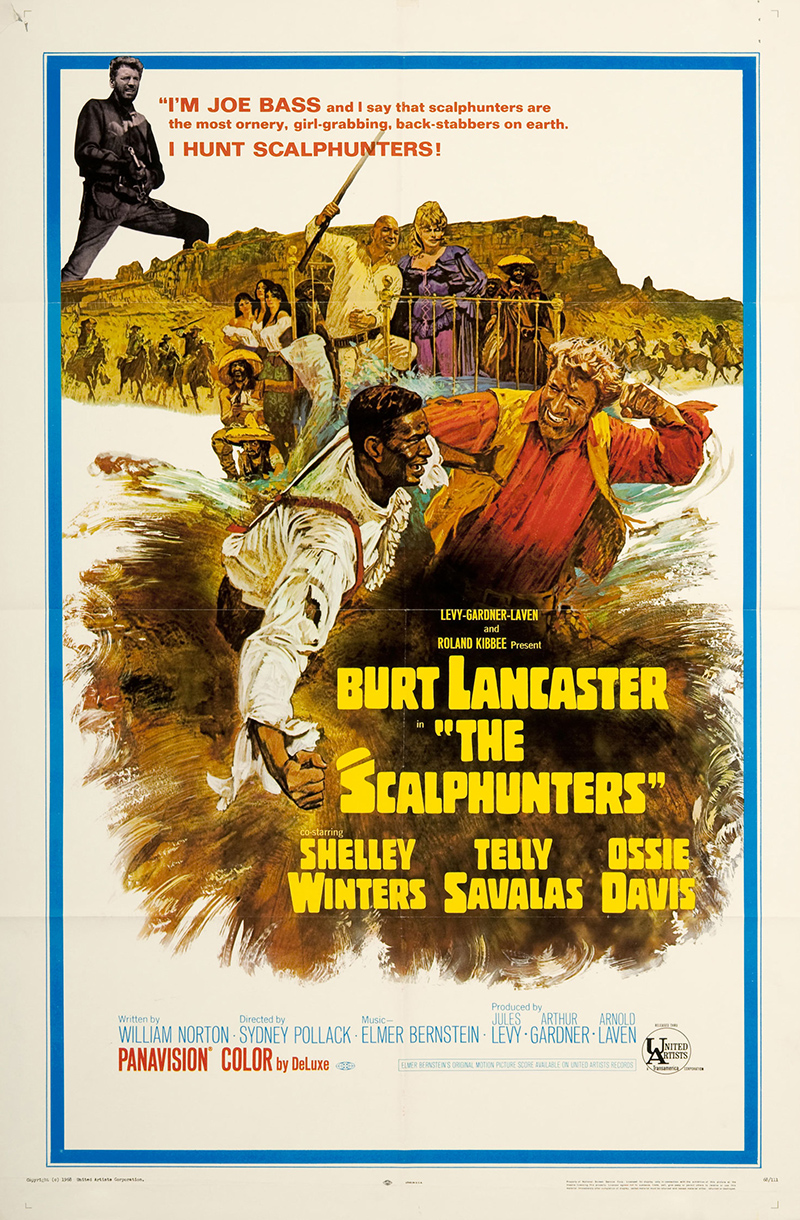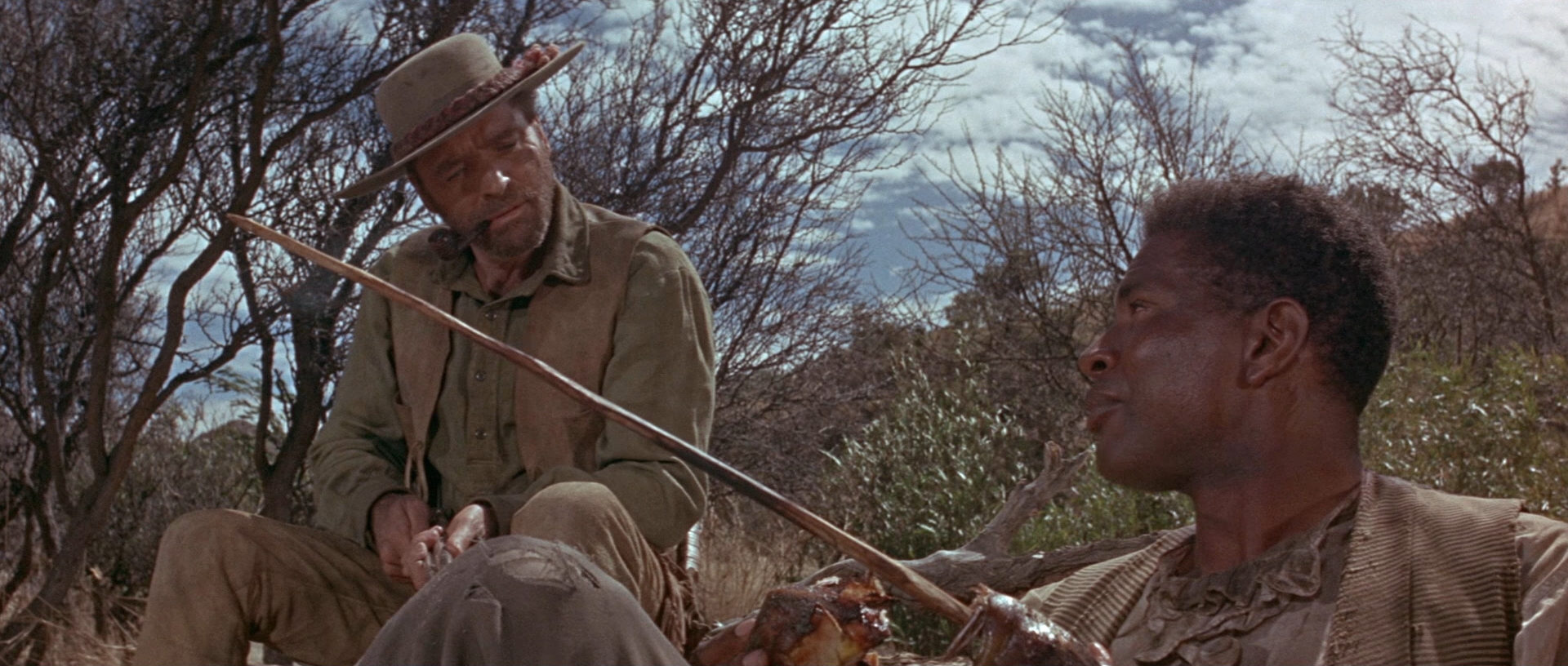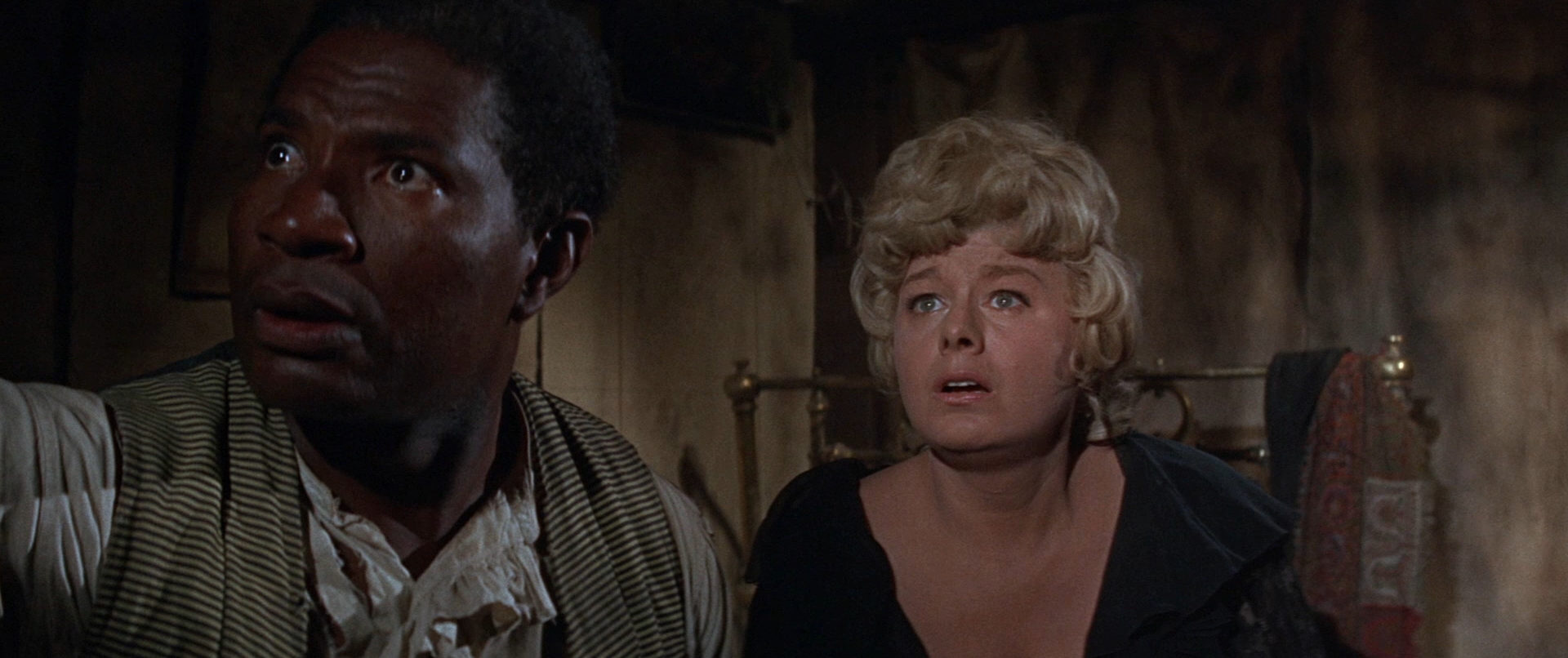

“You ever fight twelve drunk Indians?”
“No, sir. But I’d like to see it done.”
Sydney Pollack’s The Scalphunters is certainly entertaining, if not exactly distinguished; a shameless comedy Western that offers a witches’ brew of genre stereotypes, rollicking action, broad farce, and hip social commentary. Though wildly uneven—its frequent caroms from camp and slapstick to pedagogy and drama are liable to cause whiplash, and its repetitive episodic texture and repeated gags make it feel like a bloated two-part television serial—it manages to scrape by on the coattails of the likable central performances from Burt Lancaster and Ossie Davis (who is billed fourth but is unquestionably the star).
Lancaster plays coarse fur trapper Joe Bass, who, in the opening minutes of the film, finds himself forced into a trade with a tribe of Kiowa Indians led by Two Crows (Armando Silvestre): they receive his hard-won collection of pelts and the mule that carries them in exchange for an impressively literate runaway slave with the gift of gab. Capable of reading, writing, ciphering, and quoting Aesop in Latin, Joseph Lee (Davis) is the complete opposite of the gruff, uneducated frontiersman who, in a way, now owns him.
Neither the slave nor his new master are thrilled with the development, even as they stand to learn a lot from one another. Bass, who has no need for a slave but no qualms about selling one, doesn’t know what else to do but drag the man to St. Louis and shake hands with the highest bidder. Lee, meanwhile, had fallen in with a Comanche tribe in hopes reaching slavery-free Mexico (one gag involves Lee insisting that he is a Comanche), but now, captured and traded to Bass by the Kiowa, he sees his hopes of reaching the border quickly evaporating.
When Bass elects to repossess his furs before heading to the city, the unlikely pair bears witness to the Kiowa tribe’s massacre and scalping at the hands of a marauder gang—who, imperatively, take possession of Bass’s fur collection—roping Bass into a lethal conflict with the hot-tempered ringleader Howie (Telly Savalas) and his band of cutthroats. When Joseph Lee falls into the gang’s hands, Bass figures he has an inside advantage, but Joseph Lee enjoys the company of Howie’s prostitute-cum-mistress Kate (Shelley Winters) and begins devising his own schemes when he learns that the outlaws are heading for Mexico.

Once the premise is set up, scripter William W. Norton tries plucking all the low-hanging fruit he can get his hands on. Unfortunately, with his arms spread so wide he manages to gather very little. There’s a clear contrast drawn between Lancaster’s illiterate mountain man Bass, who knows which plants are good for food and which are toxic, and Lee’s cultured chatterbox, who can converse on most any subject but is hopelessly lost in the wilderness. Likewise, Bass’s condescending care for Lee is set against Howie’s outright wickedness, suggesting that neither outlook is healthy when Joseph Lee employs his own strategy and Bass is forced to trust Lee as his partner if he wants to escape with his life. None of the modish social observations are revelatory (although it’s worth bearing in mind the film came out in 1968, only a year after Sidney Poitier’s paradigm-shifting slap of Larry Gates in In the Heat of the Night), but they are capped off with a clever sequence that finds the contentious allies wrestling in the mud until their appearances are nearly identical.
The comedy remains at a steady simmer throughout, but never boils, ultimately suffering from tonal inconsistencies among the cast. It shines when it focuses on the verbose banter between Bass and Lee, Lee’s chameleonic shifts in demeanor as he reads each situation, and his reapplication of the tidbits of wilderness knowledge he’s picked up from Bass. But it flounders when it moves into physical comedy and the campy turns from Savalas and Winters. Everyone’s clearly having fun with the janky scenarios—note the sequence where Bass’s disembodied head briefly emerges from a watering hole to speak with Lee on the edge of the bandit camp, the cunning use of locoweed to drive horses crazy, the manmade rockslides, and other such shenanigans—but whether it’s the script, the performances, the editing, or the corny soundtrack, it’s rarely more than lightly amusing.

But what truly undercuts the film’s mojo is not its transparent didacticism or its rangy comic antics, but the fact that it’s built on a flimsy story that doesn’t have enough heft to create any suspense at all. The erratic contours of the plot, coupled with the deliberate thematic repetitions and frequent instances of eye-rolling humor, essentially stunt any forward momentum that any individual scene might generate and sap all tension out of the picture.
If, in the final analysis, The Scalphunters doesn’t approach the ultimate fulfillment of its wide-scoped ambitions; if it can’t make up its mind what it wishes to accomplish or which tact it should take, it is at the very least joyously crafted and lively in its frolicking.